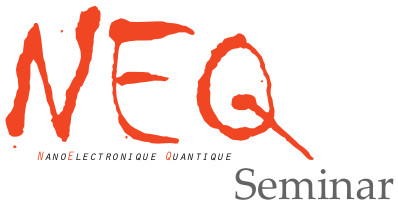- Home
- Institut Néel
- Research teams
- Technical Groups & Services
- Work at the Institut
- Partnerships

Abstract: Bosonic codes encoded using superconducting circuits offer a promising approach towards quantum error correction. Using continuous-variable systems, such as a harmonic oscillator realized in superconducting circuits, these codes compactly encode the quantum information in multi-photon states of a memory mode. Specifically, we use cat qubits for which the logical states 0 and 1 are two coherent states of a harmonic oscillator with opposite phases. These states are stabilized by leveraging dissipation to our advantage so that photon exchanges between the harmonic mode and its environment predominantly occur in pairs. In this way, “bit-flip” errors are exponentially suppressed as a function of the number of photons contained by the mode, at the modest cost of a linear increase in “phase-flip” errors. These errors could then be corrected by an additional layer of correction, such as a repetition code of cat qubits. At the heart of this thesis work is the introduction of a self-parametric superconducting circuit that non-linearly couples a mode containing the cat qubit to a dissipative mode whose frequency is set to twice that of the cat mode. Unlike previous implementations, this passive coupling does not require a parametric pump and achieves a high two-photon dissipation rate of around 2.16 MHz. Bit-flip errors are then avoided for a characteristic period of up to 0.3 s, with a moderate impact on phase-flip errors. In addition, we demonstrate universal control of this qubit using the two-photon dissipation to implement X, Y, and Z logic gates of arbitrary angles.
